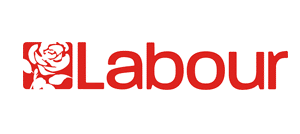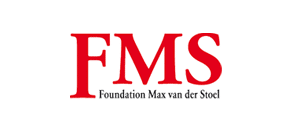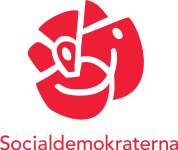Belarus
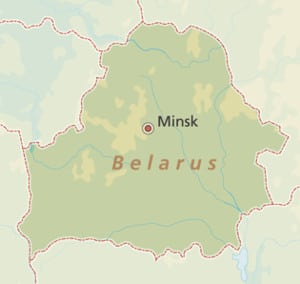
The Republic of Belarus is an authoritarian presidential state. Its current president, Alexander Lukashenko (also known as Lukashenka), has been in office since July 1994. After the parliamentary elections of November 2019, the parliament is again fully occupied by government loyalists. Official results state that all 110 parliamentary seats were won by government functionaries, diplomats, and pro-government parties after an apparent 77 percent voter turnout, meaning that the new parliament will have no members of the opposition in it. The Communist Party of Belarus holds 11 seats, the Republican Party of Labour and Justice holds 6, the Belarusian Patriotic Party 2, the Liberal Democratic Party 1, the Belarusian Agrarian Party 1, and the independents (who are strongly tight to Lukashenko) together hold another 89.
In all, the 2019 parliamentary elections were reported to be neither fair nor free. Severe human rights violations and restrictions on media are constantly reported in the country. Ballot stuffing and the rejection of opposition candidates was common practice before and during the election.
The latest presidential elections were held on August 9th 2020, and president Alexander Lukashenko claimed victory. According to election officials, Lukashenko won 80,23% of the votes, while main opposition candidate Sviatlana Tsikahnouskaya won 9,9%. However, these election results are widely considered to be dishonest and manipulated. Unprecedented large-scale anti-government protests took place before, during, and after the elections as a reaction to (among other reasons) Lukashenko’s response to the COVID-19 pandemic, crackdown on opposition leaders before the elections, and the presidential election results. These protests have been met with brutal force by the Belarussian police, and thousands of protesters were arrested, injured, and killed. The protests in Belarus have stagnated since November 2021 as many activists were imprisoned and about 300,000 Belarusians left for neighbouring countries to escape conviction.
On February 27, 2022, a constitutional referendum took place in Belarus which included various amendments on the role of the president and Belarus’ stance as a neutral and non-nuclear nation. It was approved by 65,2% of voters. It raised fears of the increasing integration of Belarus into Russia. It all occurs amid the Russian invasion of Ukraine, in which Lukashenko’s government plays a key role as he accepted the stationing of Russian troops in Southern Belarus.
-
Want to get notified by mail when this country gets updated?
Subscribe to our newsflash below!
Key Info
-
Population: 9,340,314 (World Bank 2021)
-
Governmental Type: De jure republic; de facto dictatorship
-
Ruling Coalition: Belaya Rus, Communist Party, independents
-
Last Elections: 2020 (presidential elections)
-
Next Elections: 2024 (parliamentary elections)
-
Sister Parties: Belarusian Social Democratic Party (Narodnaya Hramada), Belarus Party of Labour (BSDP)
1 Political Situation
As the state has turned into a strong authoritarian presidential republic under the rule of Lukashenko, presidential elections are the most important in Belarus. In part, this is related to the crackdown by the Lukashenko administration on opposition structures after the presidential election of 2010 and the overall internal situation in the country, which is not conducive to independent initiatives. Unfortunately, there is no indication that this situation will soon change. Changes made to the electoral code, which have been in force since December 2013, criminalise election boycotting. Key features of the Belarusian electoral process remained unaffected: neither the existing legislation nor its implementation provides the basis for free and fair elections. The authorities remained reluctant to conduct structural reforms considering the uncertain future of financial transfers from Moscow, particularly as Russia’s own economic situation worsened. Corruption remains a serious problem in the country as well. However, existing practices and planned legislative changes confirm the government’s agenda to identify and punish corrupt officials, rather than prevent and eradicate corruption as a sociopolitical phenomenon. Transparency International Corruption Perceptions Index 2022 has ranked Belarus 91 out of 180 countries and is thereby considered rather corrupt.
The whole system in Belarus is set up to facilitate Lukashenko’s presidency. Repressive laws against the opposition and protesters prevent the possibility of real democracy. Moreover, the strong centralisation in the domestic economy and the direct influence of state institutions on the (leadership) of businesses are designed to keep Lukashenko in power. In Belarus, for example, it is illegal to be unemployed, while criticism of the regime is ground for dismissal. Unemployment leads to an increase in rent and utility costs, which are also managed by the state.
Political rights and civil liberties
Systematic violation of human rights, in particular civil and political rights, continues in Belarus. Peaceful protesters are repeatedly arrested and sentenced to short periods of detention. The authorities continue to use arbitrary detentions, searches, interrogations, and misdemeanour charges on bogus grounds to harass and intimidate government critics, especially journalists and opposition activists. There are new cases of political prisoners, including those arrested after the protests following the presidential election in 2020, as well as the striking example of Roman Protasevich, editor of the opposition channel NEXTA. Protasevich was travelling in an airplane that flew over Belarussian airspace from Athens to Vilnius when the airplane was forced to land in Belarus due to non-existent bomb threats. Subsequently, Protasevich was arrested and imprisoned in Belarus. Mikola Statkevich himself was also arrested again several times after participating in protests. He is currently imprisoned in Belarus.
The use of the death penalty continues. Belarus is the only country in Europe that still has capital punishment. It has executed at least ten people since 2017. The Freedom House has evaluated political rights and civil liberties in Belarus with a 6.5 (1 being the most free and 7 the least free). Moreover, human rights violations are widespread in prisons and labour camps, where forced labour, sexual abuse, and disregard for basic needs take place, according to several human rights organisations.
Freedom of expression is severely restricted. The media remains largely under state control and is used to smear political opponents and vilify the West. Independent media outlets are harassed – including searches of their offices – and bloggers, online activists, and journalists are subjected to administrative and criminal prosecution. Independent media and journalists are mostly labelled as extremists or terrorists by the regime. They may receive severe penalties through that procedure. Consequently, independent Belarusian media has established itself mainly in Lithuania and Poland. State-run distribution outlets refuse to disseminate independent periodicals and internet activity remains closely monitored and controlled, especially after the parliament adopted amendments to the media law, enabling the Ministry of Information to shut down online news outlets. The authorities recently started using an article of the Administrative Code on “unlawful creation and dissemination of mass media produce” to prosecute freelance journalists writing for media outlets based outside Belarus, claiming that they require formal accreditation as foreign journalists with the Ministry of Foreign Affairs. Belarus is ranked 157 out of 180 countries in the 2023 World Press Freedom Index, giving the country a very bad reputation in terms of its press freedom record.
Simultaneously, Lukashenko continued his crackdown on actors in civil society, forcing many organisations to either dissolve or continue their operations in exile. People who are part of such organisations (for example in the fields of human rights advocacy) are prosecuted and imprisoned. Civil society played a huge part in supporting the 2020 protests and addressing injustices occurring during the response by the police, which used methods of violence and brutality to break down peaceful protests. In addition to civil society actors, parts of the private sector, specifically the IT industry, have faced repression from the regime as well for their participation (and their employee’s participation) in the protests. The IT sector was crucial in designing applications and tools for protesters to record injustices and communicate with one another. Through unrightfully evicting the companies from their property, imprisonment, and vilification in national media, Lukashenko’s administration attempts to obstruct the IT sector and civil society from protecting their political and civil rights.
February 2022 and onwards – Constitutional amendments and new repressive laws
Belarus approved a controversial amendment to its constitution, in a referendum that took place on February 27. It was passed with the support of 65.2% of voters, as published by the Belarusian central elections commission. It gave Lukashenko far-reaching tools to stay in power until 2035 and especially significant is a clause that scraps Belarus’ status as a neutral, non-nuclear power in the constitution – causing Belarus to be further connected with Russia and increasing fears over Belarus’ integration with its main ally. The EU, US, and UK have already said not to recognise the results of the referendum, which saw a turnout of 78,6%. The political landscape is tightly controlled by Lukashenko and his party, and voting results are possibly manipulated.
Meanwhile, Lukashenko continues to amend laws that increase repression against the opposition and the population. Wearing red and white clothing is punishable, as is shouting opposition slogans such as “Long Live Belarus” criminalised. In May 2022, Belarus introduced the death penalty for “attempting an act of terrorism.” In essence, this practically allows Lukashenko to target opposition activists, who he portrays as “enemies of the state” and often lists as “extremists” or “terrorists.” The law applies to anyone who finds himself on the latter list. The law was implemented during the time that the “Railroad Partisans,” a group that sabotaged railroads in Belarus that stopped the transportation of Russian armed forces and military equipment to the battlefront in Ukraine.
The Belarusian authorities have played a very questionable role during the Russian invasion of Ukraine. Since January 2022, tens of thousands of Russian troops were stationed in Southern Belarus near Gomel. These were allegedly present for a joint military practice mission with Belarusian troops. However, from 24 February onwards, Russian troops used southern Belarus to commence a full-fledged invasion of northern Ukraine – immediately being very near to its capital Kyiv.
Lukashenko has repeatedly voiced his support for Putin’s war in Ukraine, saying that Russia, and Belarus as well, naturally feel threatened by the West due to sanctions. There have also been reports that show Belarusian forces joining Russian operations in Ukraine’s north. In April 2022, Russia retreated most of its northern and Belarusian-stationed forces toward an all-out invasion of Ukraine’s Donbas regions.
Since Lukashenko has univocally supported Putin’s actions in Ukraine, and also gave territorial support to Russian troops, the EU, UK, and US have sanctioned Belarus similarly to Russia. The already weak Belarusian economy is suffering considerably from harsh economic sanctions. However, sanctions on Russia are not mirrored to the Lukashenko’s regime.
The Belarusian opposition supports Ukraine and speaks out strongly against Lukashenko’s questionable role in the war. Belarusians are active in Ukraine as part of the volunteer legion fighting alongside Ukraine. More than 1,500 Belarusians are part of the Kastuś Kalinoŭski regiment. Participation in the volunteer legion is punishable in Belarus and considered treason. Other aid to Ukraine is also seen as de facto treason by the Lukashenko regime.
Human Rights and Gender Equality
Human rights in Belarus are not only sometimes cast aside in politics. Reports have shown on multiple occasions that human rights violations frequently occur within Belarus. Also regarding LGBT+ rights, human rights are violated in Belarus. Same-sex relations have been legal since 1994, but homophobia is rife and there are no anti-discrimination laws that protect LGBT+ people. Some state officials, including Lukashenko, have openly expressed homophobic views.
Activists say violence has been routine in the LGBT+ community for years, but victims rarely speak out because of the high risk of social stigmatisation and the accompanying re-traumatisation, even by official authorities. Furthermore, the courts in Belarus officially recognize the “hatred motive” for violent crimes, but according to Human Rights Watch, homophobic motives for crime have only been recognised once.
Regarding gender equality, Belarus scores relatively well, ranking 41 out of 146 on the World Economic Forum Global Gender Gap Index 2023. Belarus has equal rights for both men and women enshrined in the constitution, and both economic and political participation are relatively gender-equal for the area, with women occupying 40% of the seats in parliament. Nevertheless, Belarussian culture remains conservative and gender stereotypes are pervasive. Lukashenko repeatedly emphasises the distinction between men and women, in which he takes a patriarchal stance towards the “traditional” role of men and women in the economy. Hence, women and men are excluded to take up certain professions. However, this list of professions became more inclusive towards gender over time. Women’s participation in senior decision-making positions remains low, and gender norms are perpetuated in families and social circumstances. Furthermore, Belarus lacks standalone legislative protections against forms of gender-based discrimination. Movements have been made in politics to create laws to prevent violence in the family, but conservative groups have prevented it up until today.
2 Elections
Electoral system
For presidential elections to be valid, a turnout of 50 per cent of registered voters is required. For a candidate to be elected as president, he or she must receive more than half of the votes. If no candidate achieves this, a second election round has to be held within two weeks. The president is elected for a five-year term. Elections in Belarus are primarily regulated by the constitution, the Election Code and the Central Election Committee (CEC).
Parliamentary elections are held every four years through a simple majority vote, with the outcome decided by overall majorities in single-member constituencies for the 110 seats in the House of Representatives, the lower house of the National Assembly. In addition, the upper house of parliament, the Council of the Republic, comprises 64 members, with geographically-based representation. Members of the Council of the Republic are appointed by the President and elected in a secret voting procedure. Belarus also holds elections for local councils of deputies, who are also elected for a period of four years.
Parliamentary elections
Belarus parliamentary election of 2019
On November 17th 2019, the first parliamentary elections since 2016 were held in Belarus. Official results state that all 110 parliamentary seats were won by government functionaries, diplomats and pro-government parties on a claimed 77 per cent voter turnout, which means that the new parliament will have no members of the opposition in it. During the last parliamentary elections in 2016, two opposition members won seats in parliament (Hanna Kanapatskaya, a member of the opposition United Civil Party, and Alena Anisim, an independent with links to the opposition), but neither candidate was allowed to run again in 2019.
The Communist Party of Belarus remained the largest party with 11 seats, an increase of three in comparison to the last parliamentary election in September 2016. The Republican Party of Labour and Justice remained the second largest party with 6 seats, compared to the 3 seats they won in the last election. In third place, losing 1 seat, came the Belarusian Patriotic Party with a total of 2 seats. What is notable is that three new parties entered the election, even though none of them won any seats. These parties were the Belarusian Social Democratic Assembly, Belarusian Socialist Sporting Party and the Republican Party. In total, all independent candidates received 89 seats, which is 5 seats less than in the last election.
Official election results
| Party | Votes | Seats |
| Communist Party of Belarus | 559,537 | 11 |
| Republican Party of Labour and Justice | 355,971 | 6 |
| Liberal Democratic Party | 280,683 | 1 |
| Belarusian Social Democratic Party (Assembly) | 84,790 | 0 |
| BDF Party | 82,403 | 0 |
| Belarusian Patriotic Party | 75,283 | 2 |
| United Civic Party | 72,192 | 0 |
| Belarusian Agrarian Party | 46,785 | 1 |
| Belarusian Left Party “A Just World” | 37,861 | 0 |
| Belarusian Social Democratic Assembly | 23,164 | 0 |
| Belarusian Green Party | 10,592 | 0 |
| Belarusian Socialist Sporting Party | 7,905 | 0 |
| Republican Party | 7,529 | 0 |
| Independents | 3,178,037 | 89 |
| Against All | 447,111 | – |
| Invalid/blank votes | 49,725 | – |
| Total | 5,319,568 | 110 |
International observers and opposition
Election observers and government opponents question the integrity of the elections. The observers from the Organisation for Security and Cooperation in Europe (OSCE) said that “fundamental freedoms were disregarded and the integrity of the election process was not adequately safeguarded”. Moreover, the OSCE observers noted concerns regarding the exclusion of many opposition candidates, limited opportunity for public campaigning and shortcomings during vote counting.
The 110 seats were contested by a total of 558 candidates, of which 150 opposition candidates, who were rejected by election officials. This happened on the grounds that some of the opposition candidates’ signatures were deemed invalid by authorities.
In particular, there was a concern for the opposition candidates in regard to early voting. During this time, ballot boxes are not guarded and several independent observers reported ballot stuffing as well as vote counting without observers being present.
Presidential elections
The most recent presidential election took place on 9 August 2020. Alexander Lukashenko won these according to Belarus’ Central Election Committee with 80% of the votes. Sviatlana Tsikhanouskaya came in second place obtaining 10%. Hanna Kanapatskaya obtained 1.7% of the votes and Andrey Dmitriev and Siarhei Cherachen received just over 1% each. However, these results were widely denounced as the majority of the people did not believe these to be accurate. Tsikhanouskaya and her followers believe that she is the legitimate president. Mass-protests erupted immediately after the results were made public and have been cracked down violently.
In the run-up to the elections, some popular opposition candidates were imprisoned by the Lukashenko administration, including Tsikhanouskaya’s husband Sergei Tikhanovsky and Viktar Babaryka. These arrests fall into a long history of repression of opposition candidates under Lukashenko. This makes it impossible for elections in Belarus to be transparent, fair, and credible.
Election results
| Candidate | % of votes |
| Alexander Lukashenko (Incumbent) | 80 % |
| Sviatlana Tsikhanouskaya (Belarusian Democracy Movement) | 10 % |
| Hanna Kanapatskaya (United Civic Party of Belarus) | 1,7 % |
| Andrey Dmitriev (Tell the Truth) | 1,2 % |
| Siarhei Cherachen (Belarussian Social Democratic Assembly) | 1,1 % |
| Against all candidates | 4,6 % |
Observers
The Office for Democratic Institutions and Human Rights (ODIHR) was unable to observe the presidential elections in Belarus because it did not receive an invitation from the country’s authorities. In addition, it was reported that many independent observers were detained during early voting. The observers that were able to monitor parts of the elections reported numerous violations preventing them from entering the polling stations and from checking if the ballot boxes were sealed.
Citizen initiatives have provided insight into the manipulation and large-scale fraud surrounding the elections. The platform Golos, which asked citizens to upload photos of their ballots in an app, has already been able to establish through this system that it is impossible that Tsikhanouskaya received only 10% of the vote. It can be generally assumed that she should have won the election by a wide margin. In addition, several reports have also come out describing how voters at polling stations are being pressured to vote for Lukashenko or privacy violations regarding anonymous voting.
The international community reacted in different ways. Russia, China, Kazakhstan, Azerbaijan, Uzbekistan and Tajikistan congratulated Lukashenko on his election. Poland issued a statement calling for de-escalation and said it might impose sanctions if Lukashenko would use force towards the protestors. The European Union (EU) remained silent on the matter until ten days after the elections. After an emergency summit, as a reaction to the continuous demonstrations in Belarus, the EU stated that it did not recognise the results of the elections, since they were neither free nor fair. In October, the Union made clear that Lukashenko and 40 of his high-ranking officials face sanctions over the police brutality towards the Belarusians. Their assets were frozen and a travel ban was imposed.
3 Political Parties
Social Democratic Parties
The BSDP-NH calls itself the successor of the Belarusian Socialist Hramada, which was founded in 1903. This party played a crucial role in the formation of the short-lived Belarusian People's Republic in 1918. The party was re-established in March 1991. Since then, it has been plagued by internal conflicts. Mikola Statkevich has chaired the party since 1995 and has been arrested several times for his actions against the Lukashenko government. Currently he is in prison.
The BSDP-NH demands a democratic, legal, and social state, and favours Council of Europe and EU membership for Belarus. One of the party’s priorities traditionally is the defence and the revival of national values. Today, the BSDP-NH programme wants to adapt 'classical values of European Social Democracy' to Belarusian standards. It wants a social market economy and privatisation of small and medium businesses, but wants to keep railways and utilities in government hands. According to the BSDP-NH, the medical care, the pension system, and education need to be reformed on a step-by-step basis.
Internal conflicts led to a split in the party. Statkevich was accused of acting in violation of the party's charter. Several party members split of into a new Hramada party, which also claims to be the one and only rightful BSDP.
BDSP-NH did not participate in the 2019 parliamentary elections.
The BSDP split from the BSDP-NH in 2005. They both claim to be the one and only rightful BSDP and therefore claim to have the same history and values. BSDP has endorsed Sviatlana Tsikhanouskaya during the 2020 presidential elections.
Ihar Barysau has been the party's leader since 2018.
The party was founded in 1998 by Stanislav Shushkevich, who chaired the Supreme Soviet of Belarus from 1991 to 1994. In this capacity, in 1991, together with Russian President Boris Yeltsin and Ukrainian President Leonid Kravchuk, he signed the declaration that officially dissolved the Soviet Union (Belavezha Agreement). In the first presidential election of 1994, Shushkevich stood as a candidate, but was defeated by current president Lukashenko.
The party was a member of the Five Plus opposition coalition and supported the candidacy of united opposition candidate Alyaksandr Milinkevich in the 2006 election. The social democratic faction led by Aleksei Korol left the party and joined BDSP-H, led by Kazulin. The party is in favour of an independent Belarus that is no colony of Russia, but also not a member of NATO or the EU.
In the 2019 parliamentary election they did not win any seats. The Supreme Court of Belarus banned the Belarusian Social Democratic Assembly in August 2023.
Other Parties
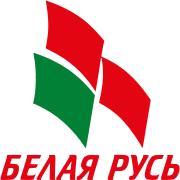
Belaya Rus is a Belarusian political party that was founded in 2007 to fully serve President Aleksandr Lukashenko. The party heavily resembles the Putin-loyal All-Russia People's Front in Russia. Its organisation allegedly has 180,000 members as of 2018. The party took 68 out of 110 seats at the 2019 parliamentary elections - that cannot be regarded as fair or competitive.
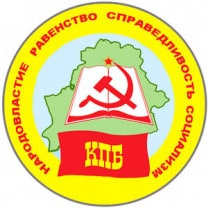
Although the Communist Party of Belarus was banned after the Moscow coup attempt of 1991, it has never lost its importance as a political movement. The party’s support base consists mainly of pensioners and civil servants. Its programme models itself after that of the former USSR, opposing reforms and privatisation and having a clear preference for the Russian culture (while rejecting the Belarusian culture). It strives for leading the society on a socialist path of development resulting in the construction of a society of social justice based on the principles of community, strengthening of the Belarusian state, and restoration of voluntary state union of the peoples of the former Union of Soviet Socialist Republics.
In the 2019 parliamentary elections, CPB won 11 seats.
The Agrarian Party used to be a big party and has always supported Lukashenko. The party was in favour of creating a confederation of Belarus, Russia and Ukraine. In the parliamentary election of 2019 the party won one vote.
In August 2023, the party dissolved itself.
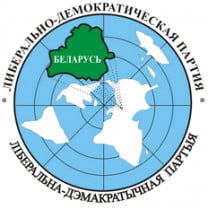
The Liberal Democratic Party was created in 1994 as the Belarusian successor of the Liberal Democratic Party of the Soviet Union. It is supportive of the Lukashenko regime, and its platform holds for the construction of parliamentary methods of law for a mixed economy by promoting the ideas of liberalism and liberal democracy. It shares a similar ideology to the Liberal Democratic Party of Russia and advocates the unification of Belarus with Russia.
In the 2019 parliamentary elections, one LDP member was elected.
The party was founded in 1993 by Ivan Antanovich, a prominent Soviet politician in Belarus. The main objectives of the party are the development of the Union State of Russia and Belarus, and the development of the Eurasian Economic Union. The party also calls for the recognition of the independence of South Ossetia and Abkhazia. Since its establishment it has not won more than two seats in any parliamentary election until 2019.
In 2019 it won 6 seats, making it the second biggest party.
The party was established in 1994 and was initially named the Belarusian Patriotic Movement. The party changed its name in 1996 to the Belarusian Patriotic Party. Its leader Nikolai Ulakhovich was nominated by the party as its candidate for the 2015 presidential election. Ulakhovich finished fourth (out of four candidates) with 1.7% of the votes.
In the 2019 parliamentary election the party received 2 seats, making it the third biggest party.
4 Biographies
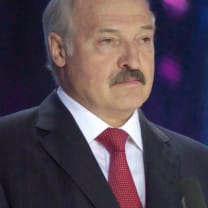
Aleksandr Grigoryevich Lukashenko was born on 31 Augustus 1954 in a small village in eastern Belarus, where he was brought up by his single mother. He has been the president of Belarus for almost three decades, and considered controversial for his authoritarian instincts and is often referred to as ‘the last dictator of Europe’. In 2020, he was elected for his 6th term, although this election is highly contested on a national and international level.
Lukashenko graduated from Mogilev Pedagogical Institute in 1975, and the Belarussian Agricultural Academy in 1985. After serving in the Soviet army between 1980 and 1982, Lukashenko started a career in collective farming in the mid-1980s. At the end of this decade, he started to move into politics and in 1990 he became a deputy in the Supreme Council of Belarus. He was the only deputy to vote against the agreement that dissolved the Soviet Union. In 1993, Lukashenko was elected Chairman of the anti-corruption committee of the Belarusian parliament and in this function, he accused a number of senior government officials of corruption.
In 1994, Lukashenko was able to defeat four other candidates and became President of Belarus. In 2001, he was elected for a second term and due to a 2004 referendum which abolished the two-term presidential limit, he was able to seek re-election for a third term in 2006, a fourth term in 2010 and a fifth term in 2015. He announced in February 2020 that he would run for president in 2020. He got elected again in August 2020, but was not recognised in the international community as the leader of Belarus, as he the election results are widely believed to be fraudulus. Following these elections, Lukashenko and his allies in the domestic politics of Belarus were imposed with several travel and financial sanctions. Meanwhile, the EU moved on to recognise Tsikhanouskaya as the de facto leader of Belarus.
He is married to Galina Lukashenko and they have two adult sons. Lukashenko also has an illegitimate younger son.
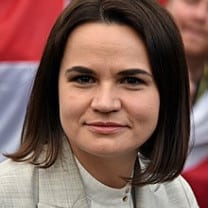
Sviatlana Tsikhanouskaya, born in 1982, is the de facto leader of the Belarusian opposition and democratic movement. After the fraudulous 2020 presidential elections, in which she took 10.2%, she had to flee Belarus after a governmental crackdown on the democratic opposition.
Tsikhanouskaya has had a major role in the August 2020 protests after the presidential elections against the regime of Lukashenko. She became a presidential candidate after her husband, Sergei Tikhanovsky, was arrested in May 2020 within 2 days after his announcement of running for the presidency. Subsequently, Tsikhanouskaya ran in his place as the main rival to Lukashenko, with the promise of immediately holding new and fair elections in case of her victory.
Meanwhile, Tsikhanouskaya now has an office (Office of Sviatlana Tsikhanouskya, OST) in Vilnius, Lithuania. She is the leader of the Democratic Forces of Belarus and widely perceived as the de facto leader of the country by foreign officials. In that respect, she meets regularly with leaders of Western countries and established a cooperation platform with the European Union to improve the process of democratisation in Belarus.
Tsikhanouskaya has been nominated twice for the Nobel Peace Prize. On April 21, 2022, she received the Roosevelt Four Freedoms Award for her work to achieve peaceful protesting against Lukashenko. Tsikhanouskaya's husband, Sergei Tikhanovsky, is currently in prison for eighteen years in Belarus for organising illegal opposition-related activities.
Roman Protasevich is a Belarusian political activist and blogger. He ran the "Nexta" Telegram channel, which became a main source of information while Belarusian authorities tried to disable internet access during the 2020 protests.
Since 2019, Protasevich was working from Poland. In 2020, Belarusian authorities put him on the "list of organisations and individuals involved in terrorist activities" for "mass unrest".
On 23 May 2021, Protasevich was scheduled to fly from Athens to Vilnius with RyanAir Flight 4978. Belarusian authorities followed him and diverted his flight to Minsk using a false bomb threat. Protasevich was incarcerated and, presumably, after a false concession now serves a years-long prison time. On the flight, his partner Sofia Sapega (Russian national) was also arrested, she was sentenced to six years in prison in May 2022.

Roman Golovchenko was born on August 10th 1973 in Zhodzhina.
Golovchenko graduated in 1996 from the Moscow State Institute of International Relations and later also from the Academy of Public Administration (2003). In 2009, he was named First Deputy Minister of State and in 2013 he was made Ambassador to the United Arab Emirates. In 2018, he was named Ambassador to Qatar, Kuwait and Saudi Arabia. He has also served as Minister of State Authority for Military Industry, before being named Prime Minister of Belarus in June 2020.
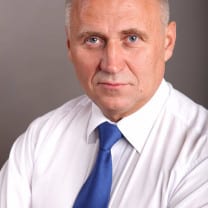
Mikola Viktorovich Statkevich was born on 12 August 1956, to a family of teachers. In 1978, he graduated from the Minsk Higher Engineering zenith-rocket academy where he later worked as a teacher, and in 1986 he obtained a PhD.
In February 1991, he left the Communist Party out of protest and became a member of the Central Rada and Executive Committee of the Belarus Social Democratic Party (Narodnaya Hramada). In 2000, he ran in the parliamentary elections, and in 2003 he became the leader of the European Coalition, which included a number of parties, trade unions, women’s and youth organisations. The Coalition was in favour of a European direction of development. In 2005, he was sentenced to three years in prison for organising a street action on 18 and 19 October 2004 in Minsk against the (falsification of the) official results of the parliamentary elections and the referendum. After he was given amnesty, his sentence was shortened by a year.
In 2009, the congress of the European Coalition nominated him as its presidential candidate for the 2010 elections. Following a violent crackdown on an opposition demonstration on election night, he was arrested and imprisoned. Statkevich was found guilty of mass riot organisation on 19 December 2010 and on 26 May 2011, he was sentenced to six-year imprisonment in a maximumsecurity penal colony. In January 2012, Statkevich was transferred from the penal colony to a closed prison with much more severe conditions of confinement. Amnesty International reported in July 2012 that Statkevich had been moved to a “punishment cell” after refusing to sign a confession. He was finally released and given amnesty in late August 2015, likely as a measure to soften Western criticism in the run-up to the presidential elections of 11 October 2015. Statkevich has two adult daughters.
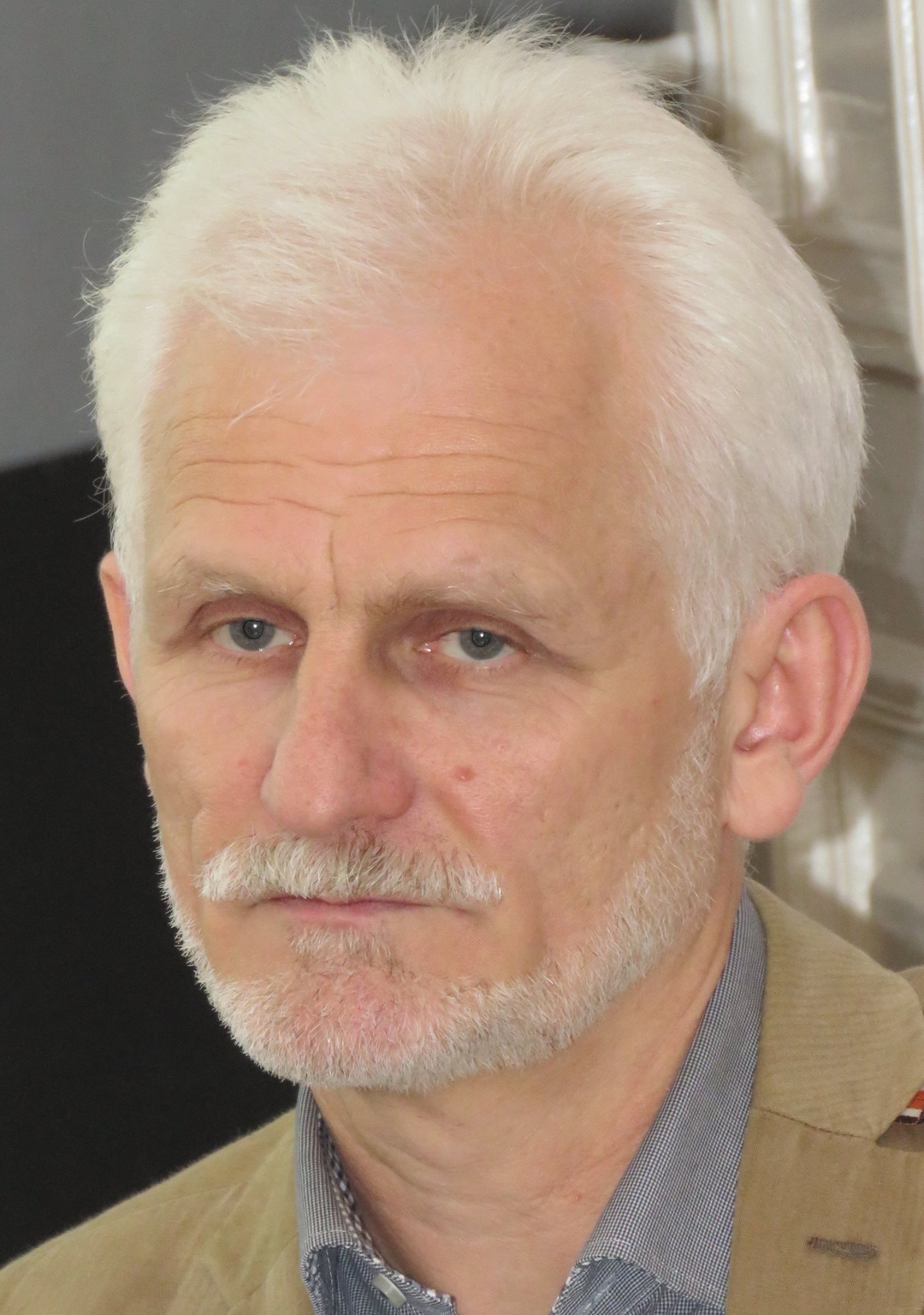
Ales Viktaravich Bialiatski is a Belarusian activist and prisoner of conscience most known for his work with Viasna, of which he is a founding member. Bialiatski is prominently known as a pro-democracy advocate and as one of the main voices in human rights activism in Belarus. For this work he received several awards (among them the Homo Homini Award in 2005, Per Anger Prize in 2006, Andrei Sakharov Freedom Award in 2006, Václav Havel Human Rights Prize in 2012, Right Livelihood Award in 2020) and honorary citizenships in several European cities (including Paris). In 2022, Bialiatski was awarded the Nobel Peace Prize along with the Russian human rights organisation Memorial and the Ukrainian Centre for Civil Liberties.
Bialiatski has been repeatedly arrested by the regime for his role in human rights and pro-democracy activism. He is currently imprisoned in Belarus.
Subscribe to our newsletter
